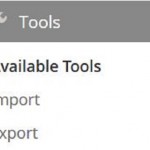
Formerly known as Blogspot, Blogger is Google's own self-blogging platform. Much like WordPress.com, it allows individuals and business owners to blog without the need for a third-party hosting service. All files and data are stored are Google's servers, eliminating the need for a domain name and web host. If you are thinking about creating a Blogger blog, however, there are a few things you should know.
Getting Started
In order to create a Blogger blog, you'll need a Google account. This can be the same account used to access Gmail or other Google services. If you don't have one already, vi...
More










